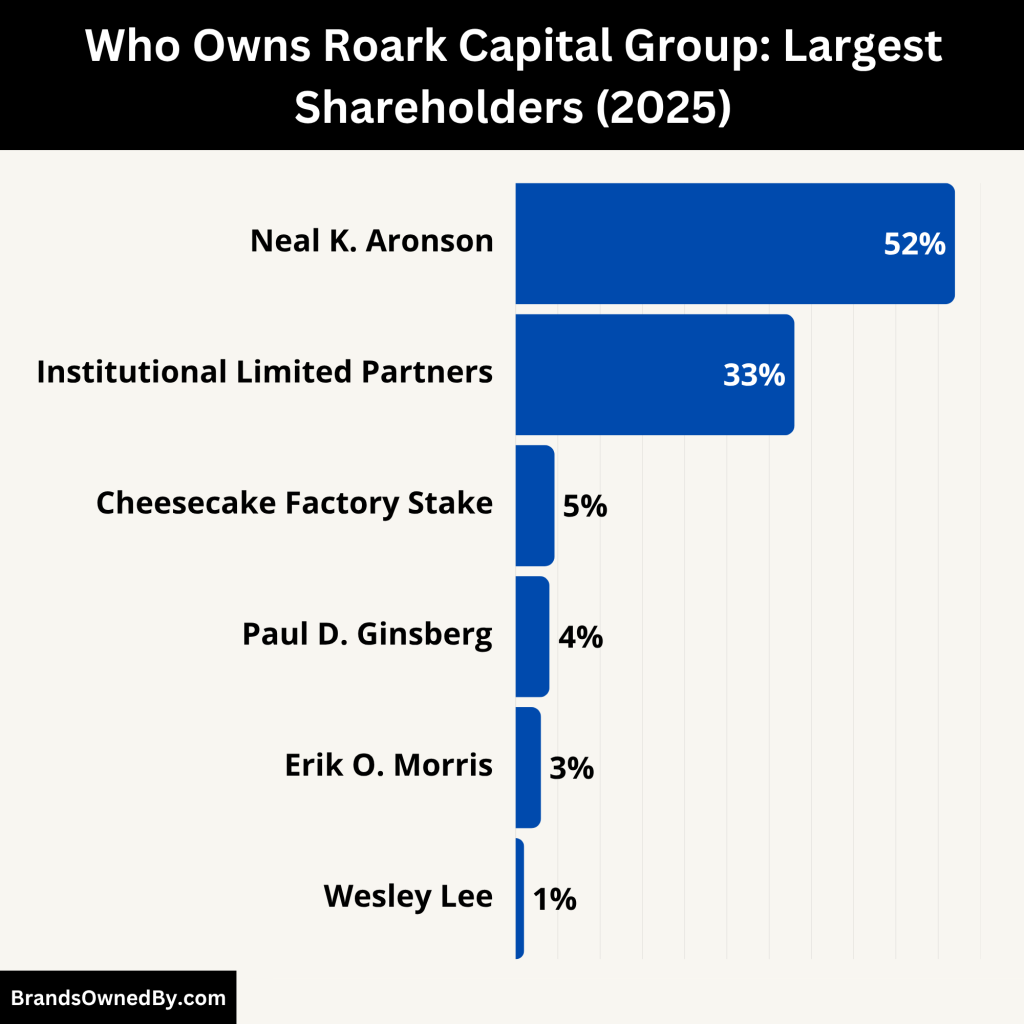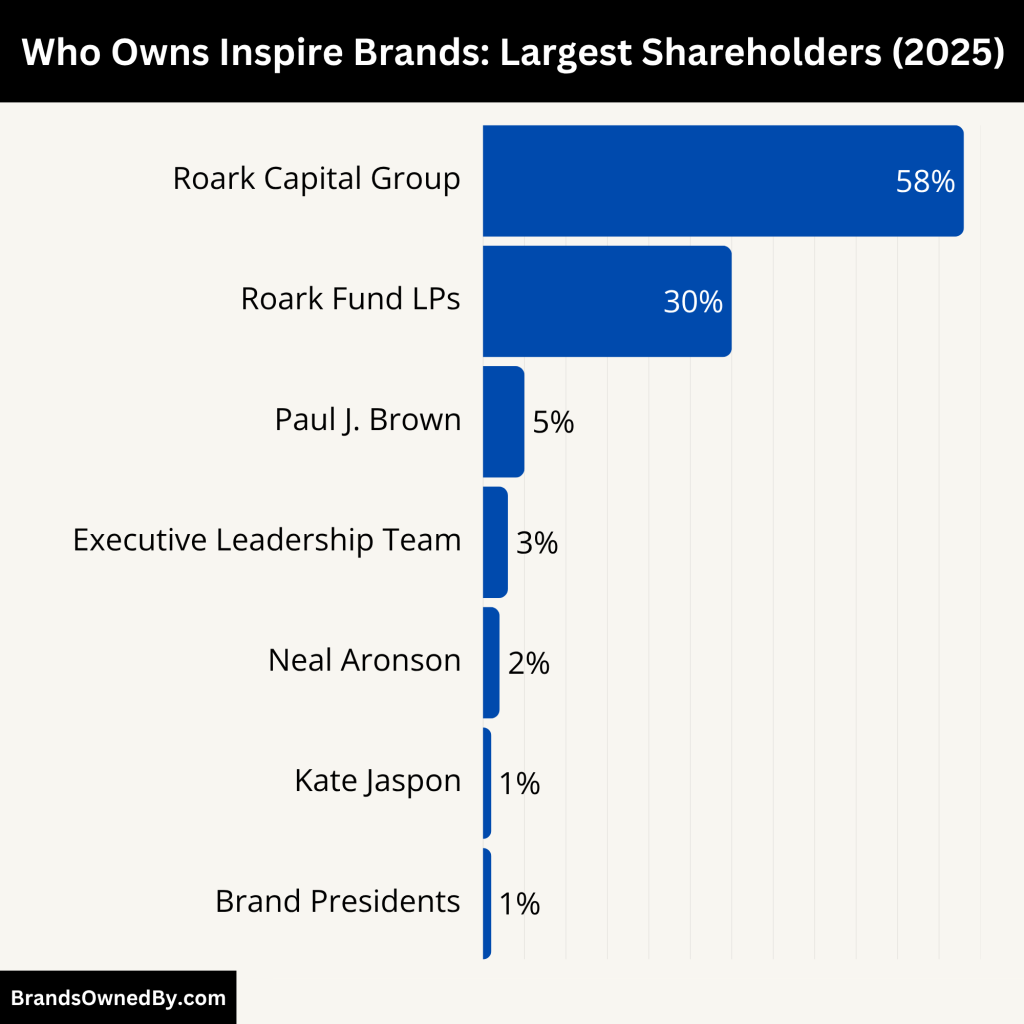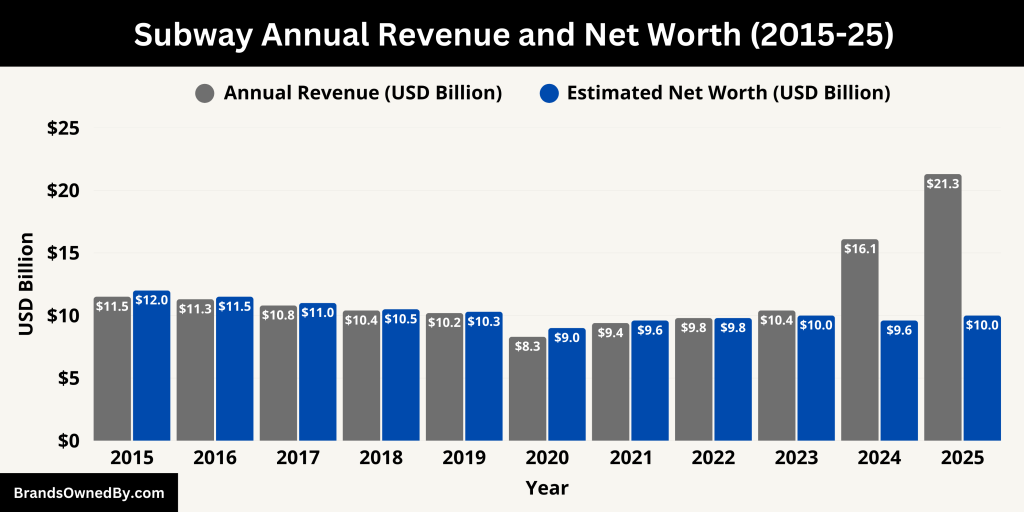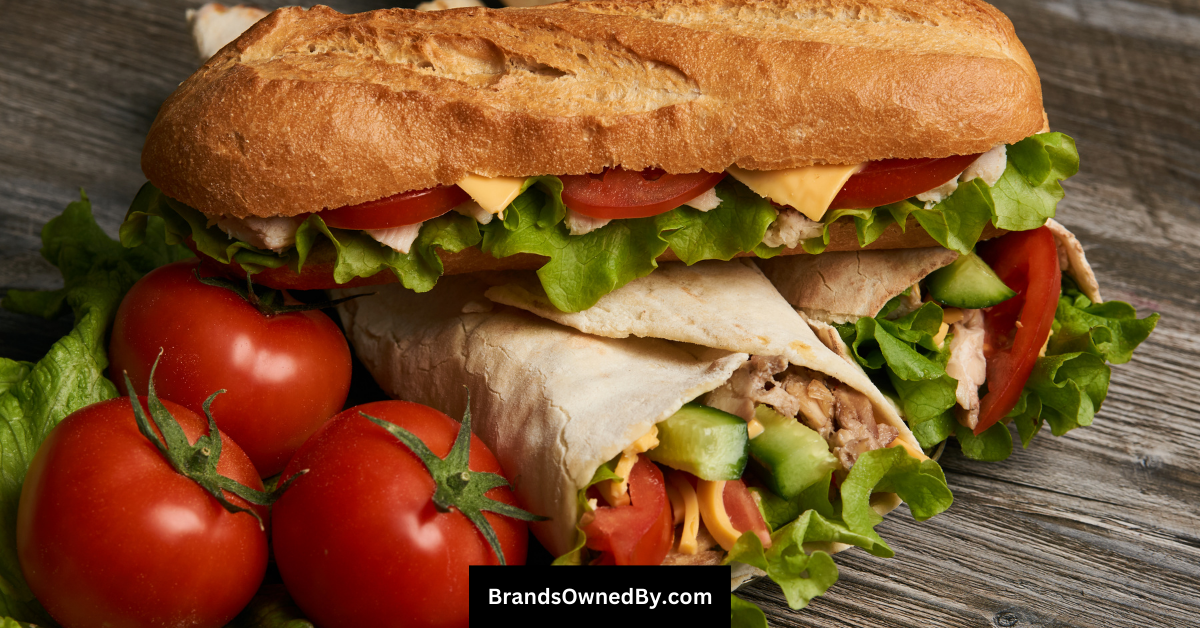Subway is one of the most recognizable fast-food chains in the world. Known for its customizable submarine sandwiches, the brand has undergone significant changes over the years. Many people often ask, who owns Subway now, especially after recent business developments.
History of Subway
Subway began in 1965 when 17-year-old Fred DeLuca wanted to earn money for college. He partnered with Dr. Peter Buck, a family friend, who lent him $1,000 to open a sandwich shop. The first store opened in Bridgeport, Connecticut, under the name “Pete’s Super Submarines.”
By 1968, the name was changed to Subway. It quickly grew through franchising. By the early 2000s, Subway had more locations worldwide than McDonald’s. Despite challenges and increased competition in the 2010s, Subway remained a major force in the quick-service restaurant industry.
Who Owns Subway in 2025?
As of 2025, Subway is owned by Roark Capital Group, a private equity firm based in Atlanta, Georgia. The firm finalized its acquisition of Subway in April 2024 for an estimated $9.6 billion, making it one of the largest deals in the fast-food industry in recent years.
Prior to this acquisition, Subway had remained a privately held company, co-owned by the families of its two co-founders—Fred DeLuca and Dr. Peter Buck. Following the deaths of both founders, the DeLuca family and the Peter and Carmen Lucia Buck Foundation held the remaining ownership. The sale to Roark marked the end of Subway’s era as a founder-owned business.
Here’s a quick overview of who owns Subway in 2025:
- Ownership Type: Privately held, not publicly traded
- Owner: Roark Capital Group
- Operational Parent: Inspire Brands
- Acquisition Finalized: April 2024
- Acquisition Value: Approx. $9.6 billion
- Previous Owners: DeLuca Family and Peter Buck Foundation
- Franchise Model: Over 37,000 franchise-owned stores globally.
Parent Company: Roark Capital Group

Roark Capital Group is a private equity firm that specializes in investing in franchise-based businesses. It manages over $37 billion in assets and has a strong portfolio in the restaurant and retail sectors.
Roark owns Subway through its operational holding structure and works closely with its food-service subsidiary, Inspire Brands, to manage Subway’s day-to-day operations and long-term strategy. Roark also owns many other major food brands through Inspire, creating potential synergies across technology, supply chain, marketing, and data analytics.
Inspire Brands: Operational Parent of Subway

Although Roark is the actual owner, Subway is now operationally managed by Inspire Brands, a Roark-controlled holding company formed in 2018. Inspire Brands oversees a wide range of quick-service and casual dining restaurants, including:
Subway fits strategically within this portfolio as a global brand with a massive footprint. Inspire Brands offers centralized operational services like technology platforms, franchisee support, and global marketing systems—services that Subway can now benefit from.
Acquisition Insights
The acquisition process began in 2023, when Subway officially hired advisors to explore a potential sale. The move came after years of declining store numbers, franchisee dissatisfaction, and the need for a broader brand refresh.
Roark Capital emerged as the leading bidder after months of negotiations. Reports indicated that the deal was finalized at around $9.6 billion, including performance-based earn-outs. The deal received regulatory approval in April 2024, clearing Roark to fully acquire the company.
Analysts noted that Roark’s interest in Subway stemmed from:
- Global brand recognition
- Established franchise model
- Opportunity to increase profitability through modernization
- Ability to integrate Subway into Inspire Brands’ network
The acquisition allows Subway to access capital, talent, and systems that were previously out of reach as a privately run family business.
Additional Ownership and Governance Details
After the acquisition, Fred DeLuca’s family and the Buck Foundation completely exited Subway’s ownership. The purchase was structured as an all-cash deal with Roark Capital buying 100% of the business.
While Roark Capital does not disclose the specific breakdown of limited partners in its investment funds, the company retains majority control, and its investment committee makes strategic decisions for the portfolio companies.
Subway remains a private company, and its shares are not publicly traded. The new ownership model brings in institutional professionalism and operational efficiency, which is expected to drive future growth and innovation.
Who is the CEO of Subway?
As of January 1, 2025, Carrie Walsh serves as the interim Chief Executive Officer (CEO) of Subway. She stepped into this role following the retirement of John Chidsey at the end of 2024.
Prior to her appointment, Walsh was the President of Subway’s Europe, Middle East, and Africa (EMEA) region, where she oversaw operations across 50 countries. Her leadership in this region was marked by strategic growth and brand innovation.
Background and Experience
Walsh joined Subway in 2019 as the Global Chief Marketing Officer (CMO), bringing with her over two decades of experience in the restaurant and consumer industries, including roles at YUM! Brands, Pizza Hut, and PepsiCo.
As CMO, she played a pivotal role in revitalizing Subway’s brand image and customer engagement strategies. Her transition to the EMEA President role allowed her to apply her expertise in global operations, finance, marketing, and development.
Leadership Transition
John Chidsey, who served as Subway’s CEO from 2019 to 2024, was the first chief executive appointed from outside the founding family. During his tenure, Chidsey led significant transformations, including a comprehensive menu overhaul, digital innovation, and the company’s sale to Roark Capital in 2023. He also focused on global expansion, securing commitments for over 10,000 new restaurant openings.
Upon his retirement, Chidsey transitioned to a consulting role to support Subway’s international growth strategy and master franchisee relationships.
Future Outlook
As interim CEO, Walsh is expected to continue executing Subway’s strategic growth plans, emphasizing franchisee profitability and guest experience innovation. Her extensive background in global brand management positions her to lead the company through this transitional phase while a search for a permanent CEO is conducted.
Annual Revenue and Net Worth of Subway

As of 2025, Subway’s estimated annual revenue stands at $21.3 billion, reflecting a significant increase from previous years. This growth is attributed to strategic initiatives implemented by the new ownership under Roark Capital Group, including menu diversification, digital enhancements, and global expansion efforts.
The company’s revenue per employee is approximately $189,400, indicating operational efficiency across its vast network of over 37,000 locations worldwide.
Net Worth
While Subway remains a privately held company and does not publicly disclose its net worth, industry analysts estimate the company’s valuation to be in the range of $9.6 billion to $10 billion. This valuation aligns with the acquisition price reported during Roark Capital Group’s purchase of Subway in 2024.
The brand’s strong global presence, combined with its extensive franchise model and recent modernization efforts, contributes to its substantial market value.
Here is a comprehensive overview of Subway’s annual revenue and estimated net worth over the past decade (2015–2025):
| Year | Annual Revenue (USD) | Estimated Net Worth (USD) | Notes |
|---|---|---|---|
| 2015 | $11.5 billion | ~$12 billion | Peak global presence with over 44,000 stores; faced rising competition and internal challenges. |
| 2016 | $11.3 billion | ~$11.5 billion | Continued decline due to market saturation and franchisee dissatisfaction. |
| 2017 | $10.8 billion | ~$11 billion | Store closures and increased competition impacted revenue. |
| 2018 | $10.4 billion | ~$10.5 billion | U.S. sales at $10.41 billion; ongoing restructuring efforts. |
| 2019 | $10.2 billion | ~$10.3 billion | U.S. sales at $10.2 billion; slight decline amid brand refresh initiatives. |
| 2020 | $8.3 billion | ~$9 billion | Pandemic-induced downturn; U.S. sales dropped significantly. |
| 2021 | $9.4 billion | ~$9.6 billion | Recovery begins; U.S. sales at $9.4 billion, up 13% from 2020. |
| 2022 | $9.8 billion | ~$9.8 billion | Continued growth with international expansion; U.S. sales at $9.776 billion. |
| 2023 | $10.4 billion | ~$10 billion | Stabilization and preparation for acquisition; revenue growth observed. |
| 2024 | $16.1 billion | ~$9.6 billion | Acquisition by Roark Capital finalized; global revenue reported at $16.1 billion. |
| 2025 | $21.3 billion | ~$10 billion | Significant growth under new ownership; strategic initiatives drive revenue increase. |
Brands Owned by Subway
As of 2025, Subway operates primarily as a single-brand entity, focusing on its core offerings of submarine sandwiches, wraps, salads, and related products. The company does not own or operate additional distinct brands or subsidiaries. Instead, Subway’s global presence is facilitated through strategic partnerships and master franchise agreements with various regional operators. These partnerships allow Subway to expand its footprint while maintaining brand consistency and operational standards.
Master Franchise Partnerships
Subway’s expansion strategy involves collaborating with experienced regional partners who possess in-depth knowledge of local markets. These master franchise agreements grant partners the rights to develop and manage Subway restaurants within specific territories. Notable partnerships include:
- PT Sari Sandwich Indonesia: In August 2021, Subway entered into a partnership with PT Sari Sandwich Indonesia, a subsidiary of PT Map Boga Adiperkasa Tbk, to reintroduce and expand the Subway brand in Indonesia. This collaboration marked Subway’s return to the Indonesian market, with plans to open multiple outlets across the country.
- Alhokair Group in Saudi Arabia: In November 2021, Subway announced a master franchise agreement with the Alhokair Group to expand its presence in the Kingdom of Saudi Arabia. This partnership aims to leverage Alhokair’s extensive retail experience to grow Subway’s footprint in the region.
- TFI TAB Gıda in Turkey: In 2022, TFI TAB Gıda, a prominent foodservice company in Turkey, added Subway to its portfolio of international brands. By the end of 2024, TFI operated 126 Subway restaurants across Turkey, contributing to the brand’s growth in the country.
These partnerships exemplify Subway’s approach to global expansion, relying on local expertise to navigate diverse markets effectively. While Subway does not own additional brands, its collaborative model ensures consistent brand representation and customer experience worldwide.
Final Thoughts
Subway’s journey from a small shop in Connecticut to one of the world’s largest fast-food brands is remarkable. With new ownership under Roark Capital and professional leadership in place, the company is positioned for long-term growth. The shift from family ownership to private equity control signals a new era for the brand. Those wondering who owns Subway today can look to Roark Capital as the answer, with strategic backing from Inspire Brands.
FAQs
Is Subway still family-owned?
No, as of 2023, it is owned by Roark Capital, a private equity firm.
Does Subway own other restaurant chains?
No, Subway does not own other chains. However, it is now part of Inspire Brands, which owns several other restaurant companies.
Who is the main owner of Subway?
As of 2025, the main owner of Subway is Roark Capital Group, a U.S.-based private equity firm. It acquired Subway in a deal finalized in 2024, reportedly worth up to $9.6 billion. Roark Capital manages ownership through its extensive portfolio of franchise-focused companies, but Subway remains a standalone brand under their control.
Does McDonald’s own Subway?
No, McDonald’s does not own Subway. They are two separate entities and direct competitors in the fast-food industry. Subway is owned by Roark Capital Group, while McDonald’s is a publicly traded company with thousands of shareholders worldwide.
Was Subway Canada sold?
Subway Canada was not sold separately. The entire Subway brand, including all its international operations (such as Subway Canada), was acquired by Roark Capital in 2024 as part of a global deal. Canadian stores continue to operate under the same brand and franchise model.
What rapper owns Subway?
No rapper owns Subway. There have been celebrity endorsements, such as by hip-hop artists like LL Cool J, but none of them have ownership stakes in the company. Subway is owned by Roark Capital, a private equity firm, not by any individual artist or rapper.
Which country owns Subway?
Subway is an American company, founded and headquartered in the United States. Although it operates globally, ownership remains with Roark Capital, a U.S.-based firm. No single country owns it, but it is an American brand through and through.
Why is it called Subway?
The name “Subway” was chosen in 1968 to reflect the submarine sandwich, or “sub,” that the restaurant is known for. It also symbolized speed and convenience, similar to a subway train, aligning with the fast-food experience.
How much was Subway sold for?
Subway was sold to Roark Capital in 2024 for up to $9.6 billion. The deal included an earn-out clause, which means part of the total sale amount depends on Subway hitting certain financial targets after the acquisition.
What does the Subway logo mean?
The Subway logo features green and yellow colors, symbolizing freshness and optimism. The arrows on the “S” and “Y” in the logo represent entry and exit, mimicking a subway system and conveying the idea of fast, convenient service.
Who is the real owner of Subway?
The real owner of Subway is Roark Capital Group, which acquired the company in 2024. Before that, it was owned by the families of its co-founders, Fred DeLuca and Peter Buck. After DeLuca’s death in 2015 and Buck’s in 2021, their families eventually agreed to sell the business.
How rich is the owner of Subway?
Roark Capital, the current owner of Subway, is not a single individual but a private equity firm managing over $37 billion in assets. Before the sale, the Buck family became one of the wealthiest families in the U.S., with Peter Buck’s 50% share going to a charitable foundation valued at around $5 billion.
Who invented the Subway?
Subway was co-founded by Fred DeLuca and Dr. Peter Buck in 1965. Buck lent DeLuca $1,000 to start a sandwich shop in Bridgeport, Connecticut. Their goal was to help DeLuca pay for college. That small idea eventually grew into one of the world’s largest fast-food chains.
When did Subway start franchising?
Subway began franchising in 1974, nearly a decade after its founding. The first franchised location opened in Wallingford, Connecticut, and franchising quickly became the main driver of the brand’s global expansion.
Who owns Subway restaurants?
Most Subway restaurants are owned by independent franchisees. These franchisees operate under the Subway brand, following company standards, but they run their restaurants as individual businesses. Subway’s corporate entity—now owned by Roark Capital—oversees brand strategy, operations, and support.

